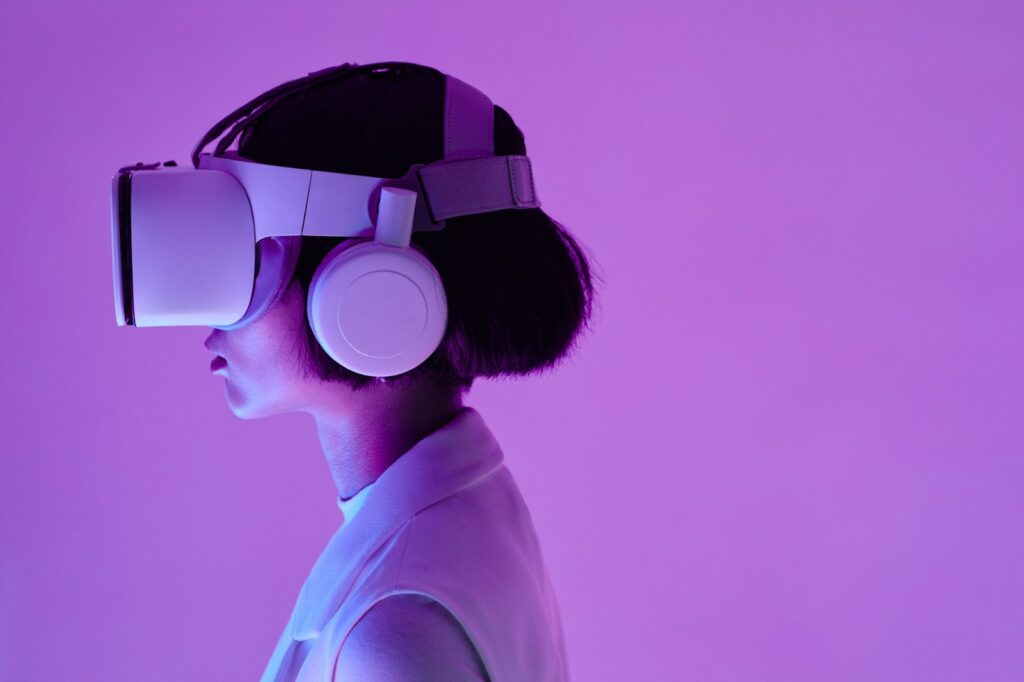The economic landscape is changing, and in the short term, we often look to Covid alone as a reason for a shifting world. But the thought that Covid is responsible for taking jobs away and changing the way we live is only half true. What it’s really done is accelerate the inevitable—the displacement of human labor through automation.
The pandemic only temporarily affected the job market—jobs that were lost as a direct result of shutdowns and restrictions have nearly been restored to pre-pandemic levels. However, the shift towards technology was well on its way, regardless of shutdowns. It has simply sped up in response to the pandemic in terms of both business and consumer behavior, and these trends are just the start of the digital transformation we’re embarking on.
How Technology is Affecting Society Economically
The most common argument against the benefits of technology impacting society is the loss of jobs due to advanced robotics and AI, which could displace millions of workers. On the other hand, those in favor of technological advancement focus on how it can improve quality of life across the board.
Both arguments have weight, and both outcomes are likely. With the dissolution of old ways comes the birth of new ways, and it would be remiss not to acknowledge the new jobs technological advancements will create. Many jobs will be lost, but as long as we closely anticipate and regulate these changes, the effects should be more positive than negative.
An obvious benefit of technology impacting society is that dangerous, unhealthy, and monotonous jobs will be given to robots, alleviating humans of these burdens. While it’s unclear whether there will be enough new positions created for humans, we do know there will be millions of jobs created by AI by 2025—97 million to be exact, according to the World Economic Forum. The same report indicates that only 85 million jobs will be lost to AI. Whether or not those stats are accurate remain to be seen, but the forecast is promising.
The most troubling aspect of this shift is not the lack of jobs, but the lack of skilled workers available to perform these jobs. Retraining a workforce for jobs in assisting, maintaining, and even training AI will become essential. In short, technology impacting society means closing doors in some areas, but opening up even more new ones. As long as we respond by adapting quickly and positively, we should be able to reap the benefits and mitigate any potential economic consequences.
Disruptive Technology and Its Impact on Individual Wealth
Technology impacting society and wealth creation reaches far beyond jobs into other areas such as personal financial management and decision making by providing flexibility, opportunity, and access. There are typically two phases in wealth building for most people—saving and investing. Both of those areas have seen massive transformation over the past few years, opening up a more accessible path to wealth generation.
From apps that help consumers track and analyze their spending habits to cash back credit cards, strategies for saving money have become significantly less elusive. The boom in remote work has allowed workers to relocate from big cities to more affordable areas—while keeping their big city salaries. Remote work also opened up opportunities in the gig economy—it’s easier than ever to make a second income online. Small online businesses are popping up like wildfire, with the barrier to entry becoming almost nothing. Anyone can start supplementing their income from anywhere in the world, as long as they have wifi, which means, theoretically, the path to wealth should be more accessible than ever before.
On the investment side, new platforms have allowed smaller investors to jump into the game sooner—with less cash. There are options for everyone, regardless of risk tolerance. NFTs and crypto have become popular, though they are not the only ways to invest online. Security conscious investors can purchase a portion of a high quality real estate asset for as little as $1,000 through real estate tokenization powered by blockchain technology—check out Akru and QuantumRE—giving them a chance to make a return on one of the most proven wealth-building vehicles without saving up tens of thousands of dollars first.
Are Traditional Methods of Building Wealth Outdated?
With the emergence of new tech changing the way we generate wealth, it’s reasonable to question whether traditional methods of wealth creation are outdated or on their way to extinction. This is not the case, however—in fact, real estate is one of the areas that’s seeing incredible innovation. Instead of replacing traditional real estate investment, technology is creating a helpful bridge for those who can’t afford to invest in real estate. Instead of waiting decades to pull together a down payment through savings, you can see a return on even small amounts of money through real estate tokenization and partial ownership, reducing the time it takes to save up a down payment to own a whole property traditionally.
In addition, stock investments are still a viable investment vehicle, and more options for stock trading are available than ever before, with platforms that make it easy to understand and execute on trades. Diversification of stocks and holding them for the long term will always be a factor in the success of stock market investment, which is why ETFs and index funds are excellent investments, as they offer a diversified collection of stocks.
Business is still another vehicle for wealth creation, and access to starting up a business—particularly an online business—is very high. Many models do not require high costs to get started thanks to the ecommerce, online services, and automation software.
Is Technology Improving Our Lives?
Technology impacting society is more than inevitable—it’s already here in very big ways. And it’s speeding up exponentially—in the next few years, AI alone will transform the way we work and live.
The good news is that most of this change will be very positive, as long as we carefully consider the impact technology and its applications will have on humans and closely monitor the path we’re on. Robots and software will take over a lot of our responsibilities, but we will still be responsible for monitoring those activities. AI at present is excellent at making predictions based on historical data and executing simple tasks that consume human hours. What it can’t do is make decisions, provide strategy, or know what to do without constant direction.
This means we will have more freedom as individuals—more freedom to live, create, innovate, and care for each other and our world. More people will have the ability to raise their own economic status, and for those who are incapable, governments, institutions, and those with adequate wealth will have to own the task of using technology to fix that.
We’re sitting on the brink of being able to change the lives of every person, regardless of where they are in society. That being said, technology impacting society is the lesser part of the picture. We as humans get to shape that impact through our decisions. We can and should be actively using technology to improve our own lives and the lives of those around us.



